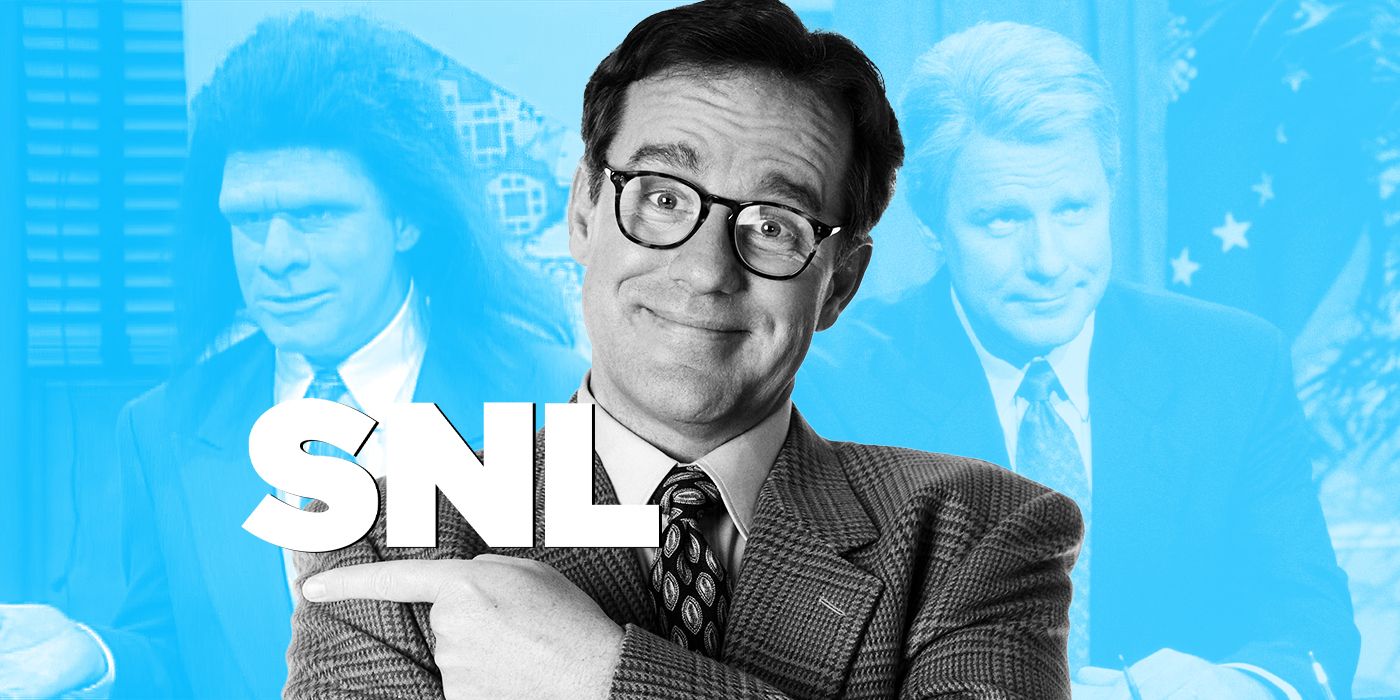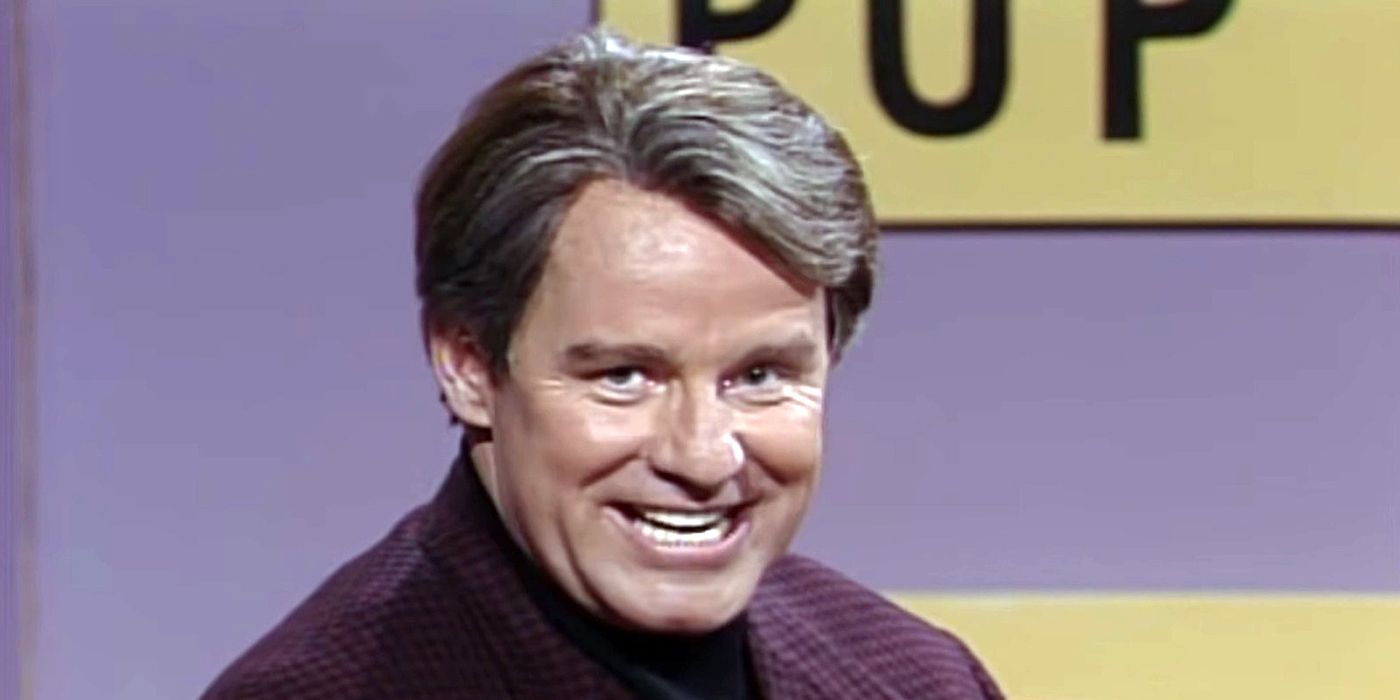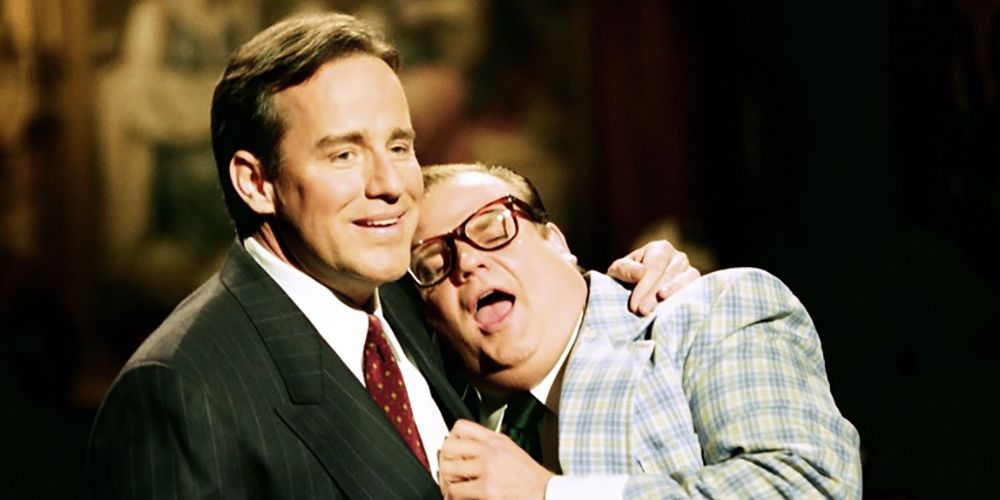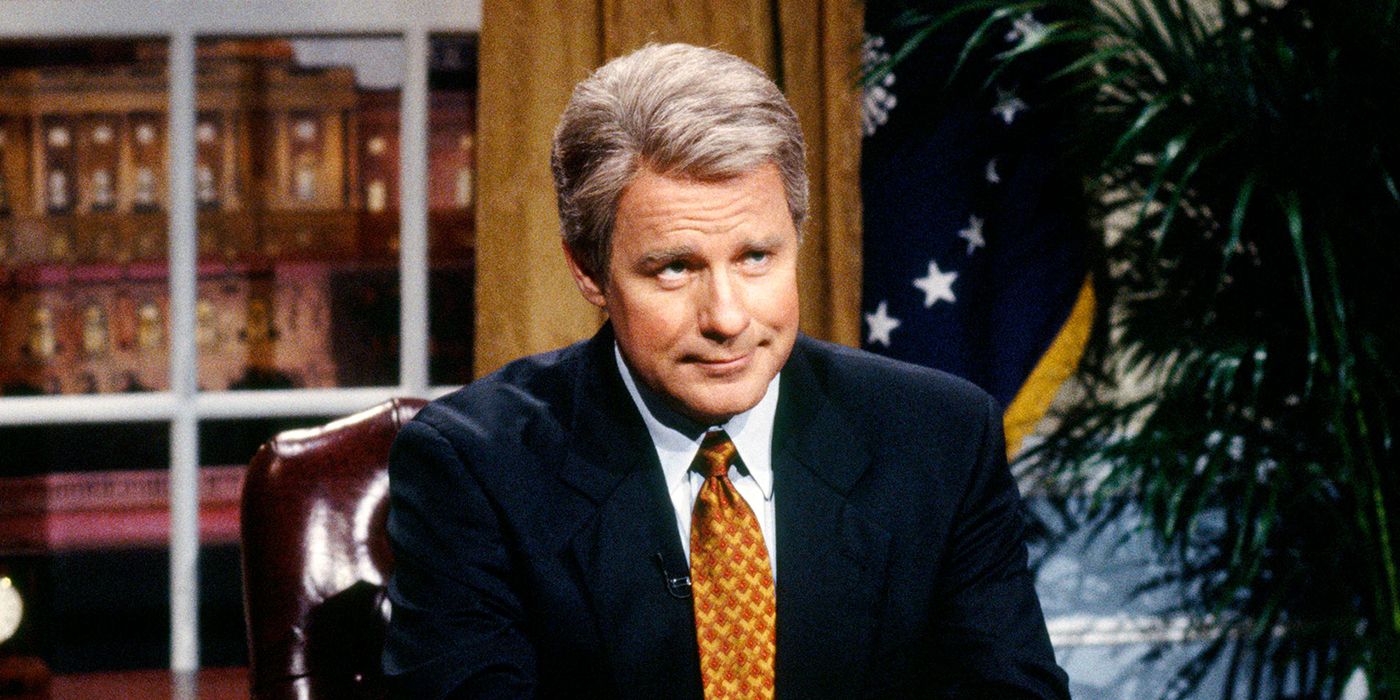Twenty-five years ago, on May 28, 1998, the world said goodbye to one of its great comedians, when Phil Hartman lost his life in a shocking act of murder. He was another Saturday Night Live legend taken away from us way too young. While so many could unfortunately see the passings of other SNL greats like John Belushi and Chris Farley coming, Hartman seemed like the least likely to have a tragedy befall him. He left behind a rich legacy that includes his series NewsRadio, voice roles on The Simpsons, and, of course, the eight brilliant seasons he spent on SNL, from 1986-1994.
Hartman was a part of two different eras in SNL. When he first arrived in the mid 80s, he was surrounded by cast members like Dana Carvey, Jan Hooks, and Jon Lovitz. Hartman quickly became the most important member of the cast due to his chameleon like ability to become anyone. Impressions were his forte. Not everyone's sketches worked well in this era, but Hartman was always there as the dependable one to turn to if you ever needed a sketch, with him playing anyone from Ronald Reagan to Frank Sinatra to Phil Donahue.
Phil Hartman Was on 'SNL' With Actors Much Younger Than Him
It was the early 90s, however, when Hartman's mastery really took over. Part of this came from him knocking it out of the park playing soon-to-be-President Bill Clinton. Part of it came from original characters like "The Anal Retentive Chef" and "Unfrozen Caveman Lawyer." Mostly though, it was through the transition of the cast that made Hartman the MVP of the show. In the early 90s, SNL underwent a big change thanks to the inclusion of new cast members who would radically change the show, with many older viewers thinking it was for the worse, while the younger crowd turned these new additions into instant legends.
A 25-year-old Mike Myers arrived on the scene in 1989. His hilarious "Wayne's World" sketches with Dana Carvey quickly became the most popular recurring segment on the show. The next year brought 24-year-old Adam Sandler, who would shoot to stardom with his parody songs and goofy, over-the-top voices. 1990 also ushered in the arrival of 26-year-old Chris Farley. With his amazing gift for physical comedy, no one got laughs bigger than Farley. As the likes of Hooks, Lovitz, and Dennis Miller left, these new stars, along with others, such as Chris Rock and David Spade, took over. All the while, Phil Hartman was there.
In 1990, Hartman was 42, a decade-and-a-half older than the wild new kids. That could have put him out of place as the perceived old guy among so many cool new kids, but instead, it had the opposite effect. It gave Hartman his own lane. While he continued to excel at playing President Clinton and others, it was his role as the "everyman" that has cemented him as one of the greats.
Phil Hartman Excelled as the Everyman Character on 'SNL'
That role of the everyman, as the cool-headed straightman, took him down many paths that others in the cast wouldn't have been appropriate for. He was perfect for SNL's plethora of commercial parodies, with his natural ability to play a pitchman or everyday Joe.
For proof of this, look no further than to a memorable sketch like "Colon Blow," which parodied the claimed effectiveness of fiber-loaded cereals. Hartman is dressed up like an office worker in his shirt and tie, sitting at a table for a bowl of cereal, when the commercial voice interrupts him to offer Hartman a bowl of Colon Blow ceral. The audience immediately laughs at the name, but Hartman plays it straight. "Mmm, Colon Blow," he says. "Sound delicious, but is it really higher in fiber than my oat bran cereal?" Hartman tries to guess how many bowls of his ceral would equal the fiber content of one bowl of Color Blow. Two? Four? Nine? He's told that it would be 30,000 bowls, as that many bowls of cereal shoots out from underneath him, sending him high into the air. "Wow, I think I get the picture. Colon Blow must be the highest fiber cereal on the market!" Hartman yells, not to draw attention to himself, but to be heard from how high in the air he is. When it's mentioned that new Super Colon Blow would take two-and-a-half million bowls of his traditional cereal, sending his character much higher, Hartman simply says, "I'm convinced."
It's a preposterous commercial, obviously. That's the whole point. But it works because Hartman plays it straight up just like an actor from a cereal commercial. If absurdity was played absurdly it wouldn't have been funny. As great as Farley was, if he had been used here, flailing about, falling over the cereal bowl pyramid, and yelling at the top of his lungs, he would have gotten a laugh, but it would have been to the detriment of the segment. That's what made Hartman so brilliant. The comedy wasn't about him as it usually is for most comedians, but about selling the idea and the writing.
Phil Hartman Helped Turned Chris Farley's Matt Foley Segment Into a Masterpiece
SNL would have been in big trouble without his experience and leadership. The likes of Sandler and Farley might have been wildly popular, but they could also be wildly immature at times. That immaturity could have led to disaster on screen if not for the steady hand of Hartman.
Another perfect example of this is from perhaps the most popular segment of the era: "Matt Foley: Van Down By The River." Farley is iconic as the out-of-control motivational speaker with his Kermit the Frog-like voice, big black glasses, and slick-backed hair. He flies all over the room as a near psychotic motivational speaker who has been invited to a home to give advice to some teenagers, played by Spade and guest host Christina Applegate. It's Farley at his best, yelling and waving his arms and throwing himself through a table. But it could have gone off the rails, with such a chaotic performance bursting at the seams thanks to Spade and Applegate almost breaking several times, going so far as to having to cover their faces to hide their laughter.
Phil Hartman and Julia Sweeney play the parents. It's Hartman who does almost all the talking and interacting with Farley. He keeps it together the entire time as the voice of reason. When Matt Foley mocks Spade's son character, named Brian, for being a writer, Hartman calmly says, with Farley right in his face, "Well, actually, Matt, Ellen and I have encouraged Brian in his writing," contradicting Foley. This enrages the man, with Farley screaming, "Dad, I wish I could just shut your BIG YAPPER!" The audience howls, and across the room, Spade and Applegate are losing control, but Hartman, with Farley inches from his face, doesn't laugh. He's the pro, giving off a modest shocked reaction at being yelled at and going no further. That sells Farley's performance and keeps it about him. If Hartman had broke, which would have been understandable, it would have taken away from the segment and what Farley was doing.
The Cast of 'SNL' Called Phil Hartman "The Glue"
That's who Phil Hartman was -- the everyman who could have a sketch be about him but who really stood out as the glue who kept everything under control. Beck Bennett played that role well recently. Cecily Strong was even better as a female version of Hartman, the straightwoman who kept a skit on the rails. With Hartman though, he was doing it with unexperienced actors only half his age. Hartman was often called "The Glue" by his cast mates for his ability to hold a scene together. In a 2014 interview with Grantland, Julia Sweeney said, "People like Phil make it safe for people to be crazier. They're the gravitas. It's not going to go completely off the rails if Phil's in the sketch." In a 2020 interview with Entertainment Weekly, Hartman's NewsRadio co-star, Stephen Root, put it simplyin, saying he was "an everyman who could do anything."
SNL now always has the straightman, the everyman, to hold a scene together. Bennett and Strong were great. Bill Hader and Mikey Day have done it well too, but all of them would only occasionally play characters like that when they weren't doing something else. Hartman made his career off of it. In two of his final film roles, Jingle All the Way and Small Soldiers, Hartman kept an out-of-left-field premise grounded by keeping his character's feet there. He let everyone else go crazy, while he was the regular man reacting to it, and making us laugh through how normal he could stay in such chaos. No one has been able to match that since. No one probably ever will.




